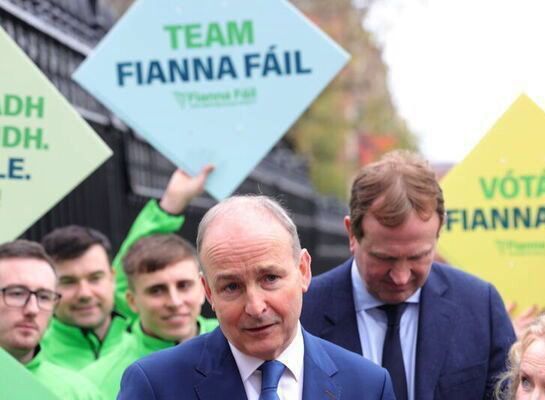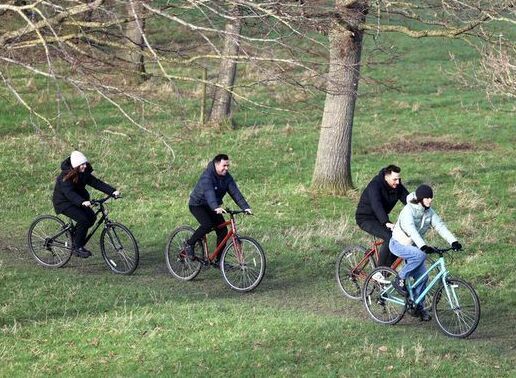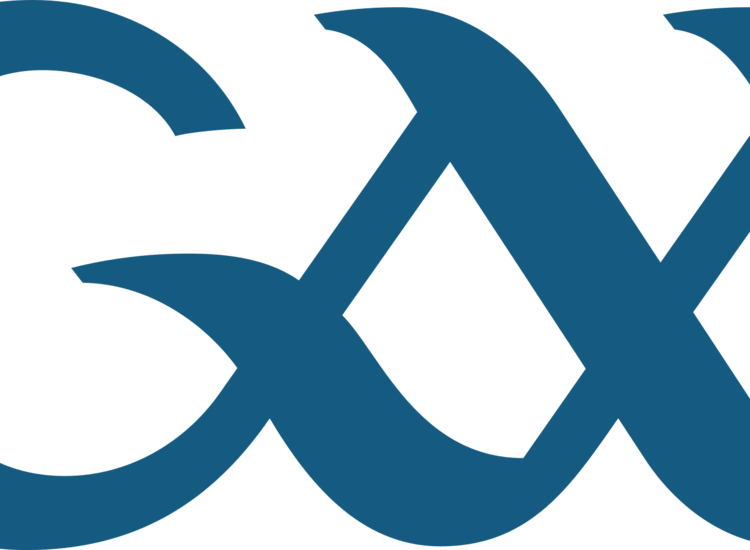The votes are in. They have been tallied and counted. The Irish voters have spoken. And in doing so they have, to a considerable degree, repeated themselves.
The next government is going to look not unlike the last government, albeit with a likely new third party propping up the two dominant parties, Fianna Fáil and Fine Gael.
As Fintan O'Toole put it succinctly in his Irish Times column: "It would be a silly exaggeration to call any general election a non-event. But in this case the overstatement would be slight. The things that did not happen seem a lot more significant than those that did. The outcome is negatively charged in five different ways.
"The first is Ireland bucking the anti-incumbency trend of elections around the democratic world this year. Voters in Britain kicked out the Tories. In the US, they savaged the Democrats. In France, Emmanuel Macron’s allies were trounced. The three parties in Germany’s ruling “traffic-light coalition” each received a pummelling in state-level elections. In Japan, the deeply entrenched Liberal Democratic Party lost its parliamentary majority and the same happened to South Africa’s ruling African National Congress.
"So there is something remarkable about Fianna Fáil and Fine Gael returning quite comfortably to power. It may not seem that way to us, but from an international perspective, their achievement is considerable. And yet their combined share of the vote has continued to contract."
Something remarkable indeed. And remarkable when you cast an eye back into the political history of the independent Irish state.
These two parties, for most of that political history, were sworn enemies. As recently as the 1980s we witnessed the contrast of Fianna Fáil being led by Charles Haughey and Fine Gael led by Garret FitzGerald, the gap between the parties being exemplified by the glaring contrast between the two leaders.
In the 1990s, Ireland began to change. Part of that change came from north of the border with the signing of the Good Friday Agreement. The long held differences of view on that border between Fianna Fáil and Fine Gael began to recede as both parties accepted that the decision on the border's existence did not rest in the hands of either of them, but rather in the hands of the people in the six counties.
Ireland continued to change with the arrival of money, lots of it. The Celtic Tiger years brought the kind of largesse, or apparent largesse, that tended to defang traditional politics. The crash exposed Irish politics as being rather toothless. Ireland, all of a sudden, was a bobbing cork in a turbulent economic and geopolitical sea.
But all along America was coming to the rescue in the form of massive corporate investment. Who needed to worry about which side great-grandad fought for in the civil war when another supermarket was opening down the road and offering all the needs and desires of a modern consumer society.
There was change afoot of course. The Good Friday Agreement and its political bounty had set Sinn Féin on a new course, north and south of the border. Fianna Fáil and Fine Gael recognized the challenge and so circled the wagons in the form of shared government. And that included sharing the job of Taoiseach.
In the outgoing government the Greens played the role of decisive, third party, prop. And, like Icarus, they have paid the price of getting too close to the celestial entities that were once those sworn enemies led by "The Boss" Haughey and "Garret the Good."
The Greens have been all but wiped out in terms of seats in the next Dáil so, from a Fianna Fáil and Fine Gael perspective, there will be a need for a new prop. Labour and the Social Democrats can expect phone calls.
If any party can claim to be a winner this time around it is Fianna Fáil. Party leader Micheál Martin can look forward to being Taoiseach once again but might have to share the job with outgoing Taoiseach Simon Harris, whose party is seeking "parity of esteem" with Fianna Fáil. So not all has changed utterly. The center of political gravity has held, this despite clear economic challenges in the days ahead.
As for Sinn Féin? The party, or some within its ranks, were hoping that it would emerge as the number one in terms of Dáil seats this time around. It is having to settle for second place.
But that will not secure a seat at the government table with a sharp elbowed third place, Fine Gael claiming that prize. The old politics, the version with the whiff of great-grandad's time, hasn't gone away completely you know.








